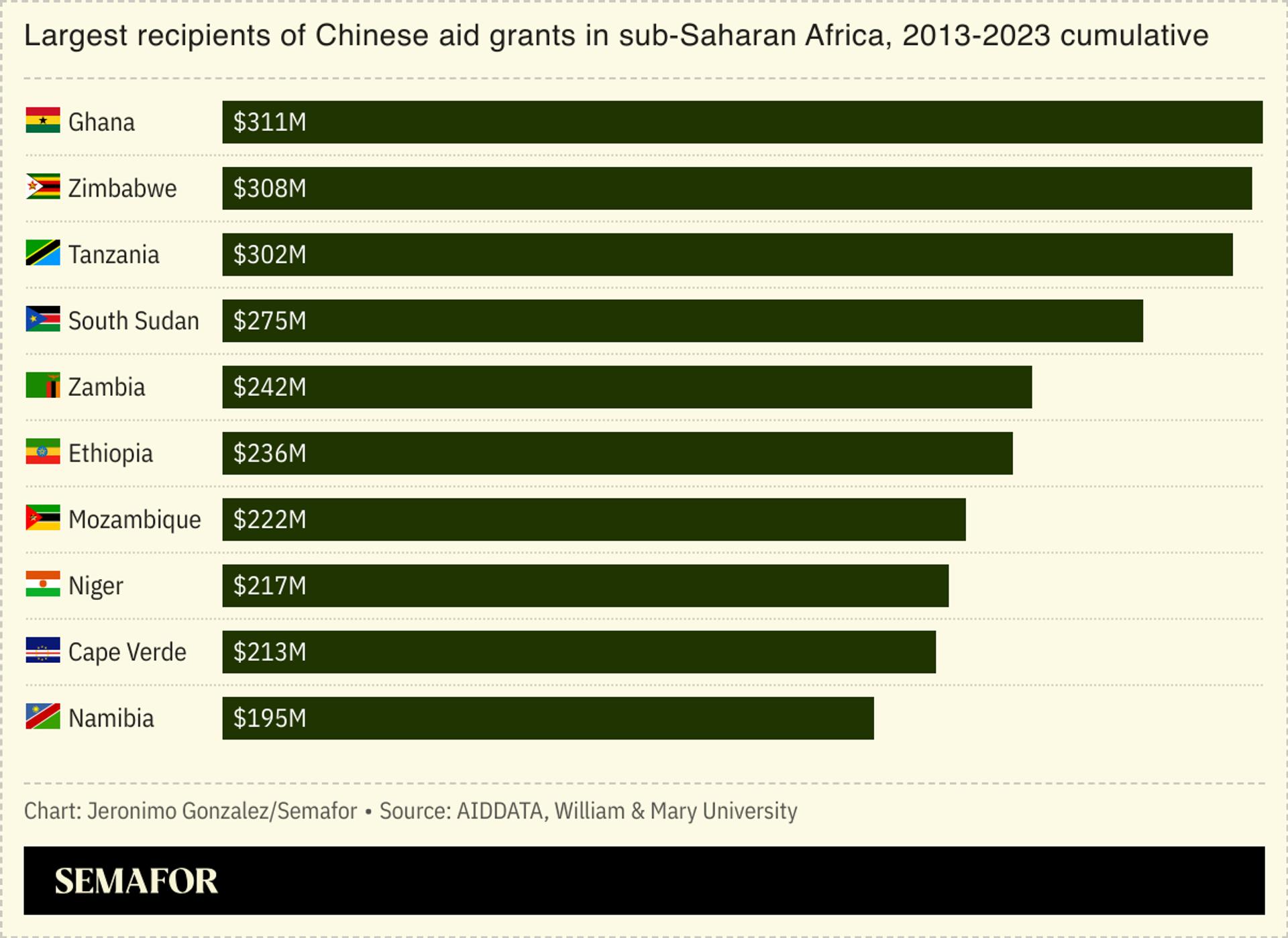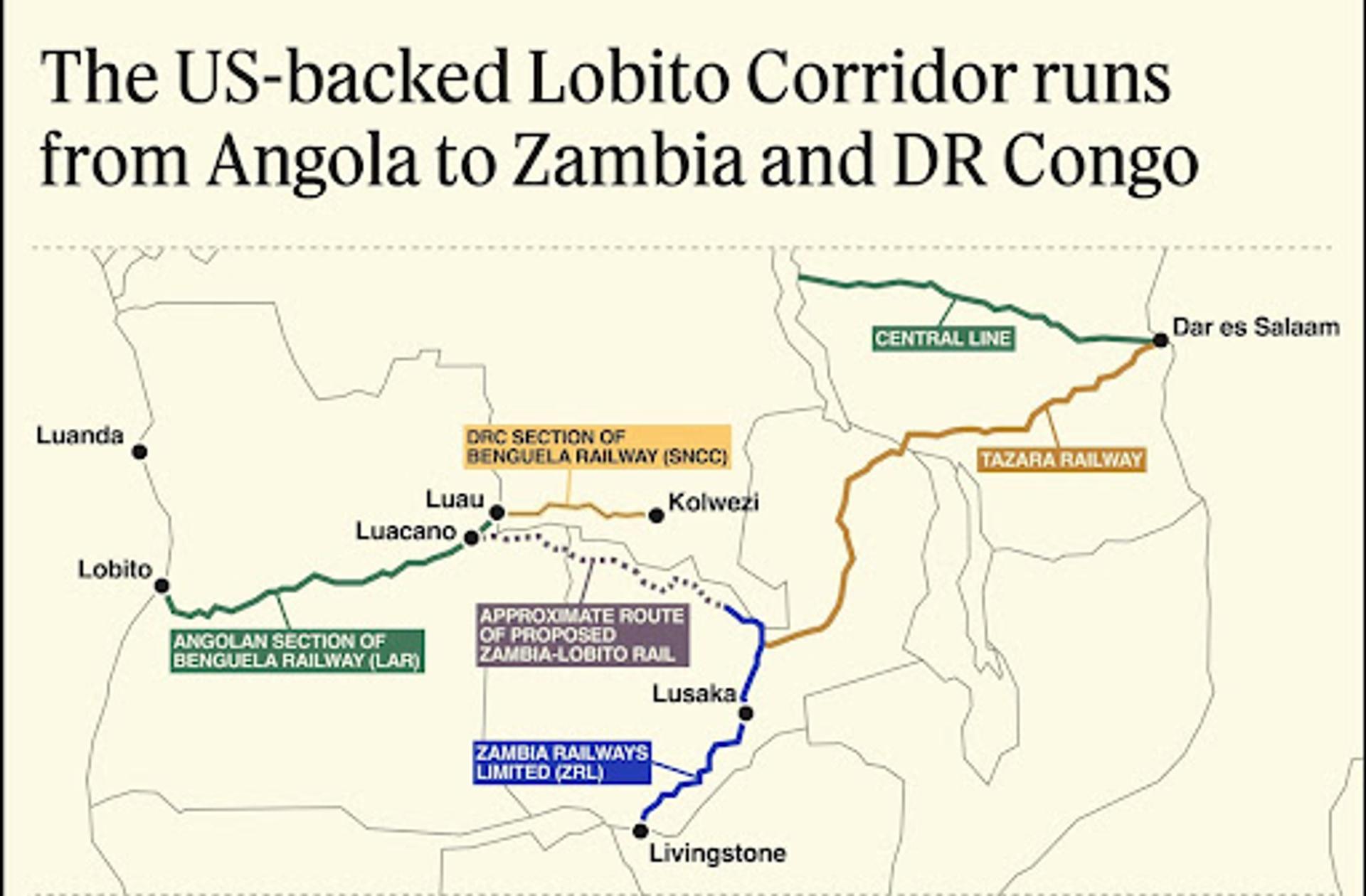The News
The Trump administration’s decision to freeze billions of dollars in foreign assistance creates an opportunity for China to strengthen its presence in Africa, but Beijing will not step in to replace the decades-old aid programs now coming to an end, say China-Africa analysts.
Semafor spoke to nearly a dozen China-Africa analysts in recent days who said that China was set to position itself as a reliable partner in the face of the uncertainty unleashed by the US shuttering programs such as those run by the US Agency for International Development (USAID). But even then, few of the analysts thought there would be notable change in China’s overall approach in Africa in the short to medium term.
“The idea that the dismantling of USAID opens the door wider for China in Africa is a misdirection,” said Hannah Ryder, CEO of Development Reimagined, a development consultancy. “They don’t give aid in that way, so they can’t “replace” USAID.” Eric Olander, editor of China Global South Project, agreed: “It absolutely is an opportunity for China but not in the obvious ways.” He said it is more likely that China steps up with headline-grabbing moves as it did with the provision of vaccines in some African countries early during the COVID-19 pandemic.
While China has spent tens of billions of dollars through trade and infrastructure project loans in Africa over the last decade, it spends significantly less on aid. Around half of its $3 billion aid budget is deployed on the continent.

Know More
USAID managed a budget of up to $50 billion last year, running nearly 6,000 humanitarian, health, and developmental projects around the world. It has had a significant impact on African economic development projects, such as Power Africa and Prosper Africa, many of which are now either paused or completely shut due to the funding freeze imposed by US President Donald Trump’s executive order in January. USAID is expected to slash its staff of 10,000 to about 300 with just about a dozen workers left to focus on Africa within the US State Department.
China’s presence in Africa, which has ramped up over the last two decades, has traditionally focused on trade, technology, infrastructure, and security rather than humanitarian aid or health, said Ronak Gopaldas, an analyst with Cape Town-based Signal Risk. “But Trump’s America First approach will create some geopolitical opportunities for China to step into a leadership void in Africa,” he noted.
Olander said any moves by China would not be on a comparable scale to the US’ traditional efforts. Last month China and South Korea sent $4 million to the Africa Centres for Disease Control to help plug some of the immediate health funding gaps left by the US aid freeze. But that number was set against cuts of $115 million by the US from its previous pledge of $500 million. “We shouldn’t expect to see the Chinese try to match USAID because they don’t have the infrastructure to do that and it’s not in their diplomatic DNA to run large aid programs.”
Yinka’s view
There has been plenty of speculation in recent months about how the expected “transactional” nature of a Trump 2.0 administration would play out in Africa. If you want some idea of how that might work, look no further than how the Chinese have operated on the continent for the last 20 years.
Their emphasis has always been on dealmaking, transactional partnerships, and “win-win” agreements. Africa has been an important setting for Chinese global economic expansion. Even as the US focused on building legacy infrastructure systems for delivering vital humanitarian and health programs, China was busy building actual physical infrastructure of bridges and roads.
Both were always needed across most African countries, and it could be argued — despite the misleading talk of Chinese debt traps — that the last 10 to 15 years has been a fertile period for African governments hoping to develop with US humanitarian aid and Chinese infrastructure support.
Sanjeev Gupta, a veteran development finance consultant who has partnered with Chinese companies on projects across the continent, said African governments have a deeper relationship with China than many realize. “China has a much more elevated game with a nuanced understanding of the terrain in a way that the US does not,” said Gupta.
However, that deeper relationship could evolve into a dependency if the US leaves the field for China in many countries, notes W. Gyude Moore, a non-resident fellow at the Center for Global Development in Washington. “Every state seeks to diversify its partnerships to prevent a dangerous dependence on a single actor,” he said, noting China is already Africa’s largest trade partner and bilateral creditor. “The US withdrawal only increases China’s importance making it arguably the only game in town.”
The View From South Africa
Even if China had ambitions to fill in the aid funding gaps left by a US exit, it might not be able to do so given its own economic challenges and growing domestic concern about spending abroad, said Atlantic Council’s Alexander Tripp. “It’s unclear if China has the capability and capacity to do what the US traditionally has done,” he told Semafor. Tripp pointed to a few “soft power” pushes by China including the “Peace Ark,” a Chinese hospital ship that docked in South Africa last year and that Chinese leaders have “been eager” to highlight. “But initiatives like this are more one-offs.”
Room for Disagreement

If the US employs a more transactional approach with Africa it could result in more strategic projects like the Lobito Corridor, a project inaugurated by the Biden administration in Angola last year, particularly as the race for rare minerals needed for electric vehicles and green energy projects accelerates. That could see the US take on China in a sector in which the Asian giant currently leads, especially in the processing of these rare earth metals.
Notable
- The USAID cuts are “going to do an enormous amount of damage to US soft power,” a senior contractor for the agency told the Christian Science Monitor.

